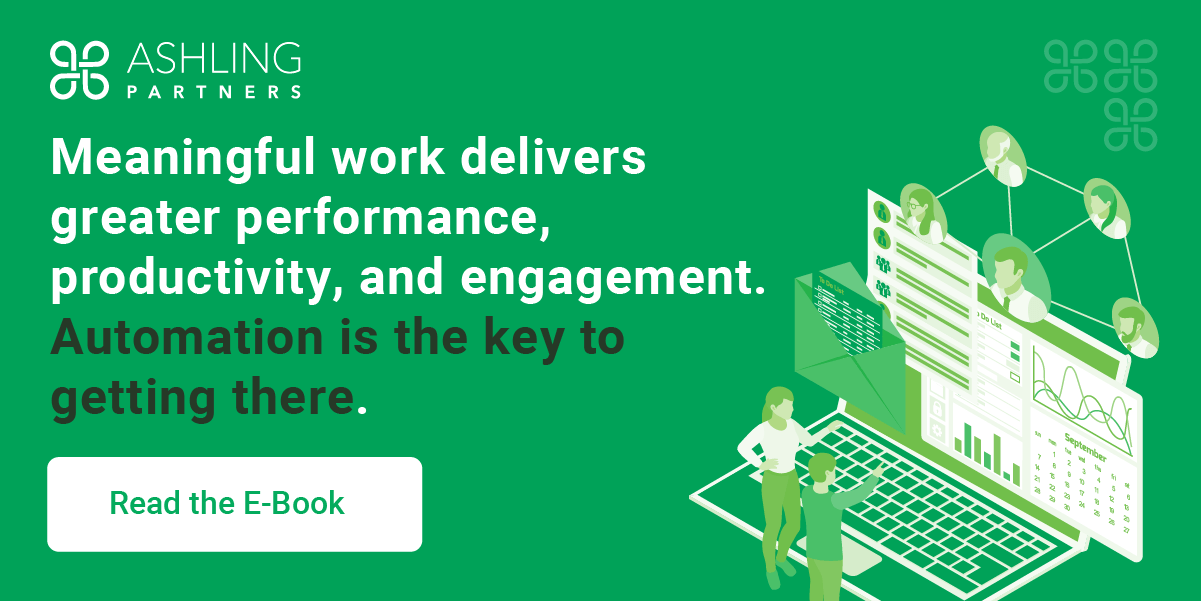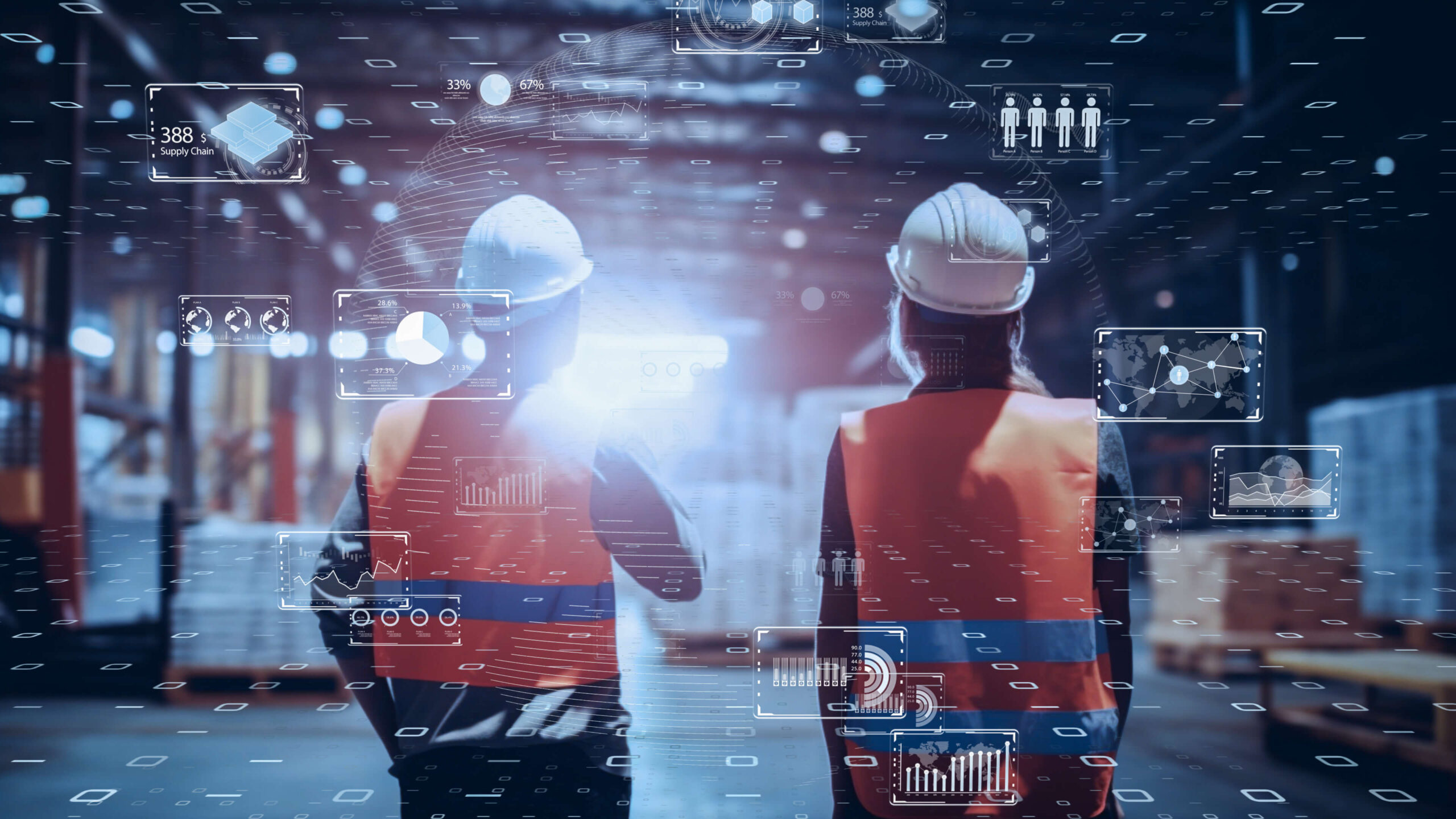The business world is staring down its next horizon. After several years of disruption and innovation, organizations realize they must prioritize evolution and agility to meet the demands of the future.
Digital transformation is a priority for most, and automation is driving it. As more companies adopt both Robotic Process Automation (RPA) and Intelligent Process Automation (IPA), they are reaping the many benefits of both. Automation and the future of work are inextricably linked, inspiring opportunity and highlighting the need to adapt to this new era.
Automation initiatives are crucial, but they are complex and multifaceted. You’ll face challenges in adapting to this new era. How can your organization do so successfully, and what is the key to unlocking the future of work with automation?
What Does the Future of Work Look Like?
Since 2020, there has been a significant acceleration of the conversation around the future of work, spurred by the pandemic. Innovation came faster as a necessary means of survival, and employees began to rethink their relationship with work in many ways, from where they do it to how they do it. Much of this exploration has to do with technology.
Technology is and will continue to be a common thread across almost all kinds of work. However, automation and digital robots won’t wipe out jobs, as some fear. It will certainly impact jobs, from eliminating repetitive tasks with basic automation to using more advanced automation that leverages Artificial Intelligence (AI) and Machine Learning (ML). This high level of automation will eliminate some jobs, but the ones it will create are the bigger story.
Automation and Jobs: Displacement and Creation
The World Economic Forum Future of Jobs Report predicts that automation will displace 85 million jobs by 2025 but will create 97 million. Those roles will be created as a result of people, machines, and algorithms working together.
Many of these are new careers that are skills-based and will be in high demand. Thus, there is both positive and negative fallout from automation. A study by professors at MIT and Boston University found that all the productivity effects contributing to labor demand will offset the negative.
The ultimate impact intelligent automation will have on jobs depends on the industry, the type of tasks automated, and the skills of the workforce. Based on these factors, some industries could see more job displacement than creation.
Job displacement is more likely in those roles where completing repetitive tasks is a significant portion of the responsibilities. A recent report from economists at Goldman Sachs found that AI automation would most impact administrative support roles, legal work, tasks within architecture and engineering, physical and social sciences, and financial operations.
However, that doesn’t mean that organizations will no longer need administrative assistants, lawyers, paralegals, architects, engineers, or financial analysts. It may simply mean that the people filling those roles shift to doing what machines can’t do. Overall, the assessment is that automation and AI will sometimes be a substitute for humans but will more often be a complement, augmenting the work humans do.
Automation helps people do their job better and more efficiently by handling rules-based, repetitive tasks that are necessary but not high-value. This is in line with the progression of technology in the working world. Computers didn’t take over all jobs as they grew in popularity; they became an essential tool and asset.
The Goldman Sachs report highlights that work will experience a productivity boom, which will be economically significant. Productivity has been in decline, and automation and AI have the potential to reverse this decline with an annual productivity growth potential of 2 percent.
Some industries will benefit more than others, depending on if they are early adopters or laggers. The former group includes finance, automotive, and telecom; the latter includes healthcare, manufacturing, and energy. Those behind can catch up by making the right strategic decisions and investments.
When organizations have a mindset of using automation to achieve digital transformation and agility, they understand that humans and technology are collaborators, not foes. The results substantiate this reality with automation supporting data-driven decisions, operational efficiency, and meaningful work.
Next, let’s look at specifics around digital automation and its impact on the future of work.
The Impact of Digital Automation and the Future of Work
Digital automation plays a vital role in the future of work. It has been an ally as a problem solver for the many challenges organizations in all sectors face. Here are some examples to illustrate the ways work will improve.
Customer Success and Support: Agents Become Resources
Automation is already making a big difference in customer success and support. Businesses are applying it to multiple areas, including self-service options, with AI and ML making baseline automation smarter and more capable.
There are benefits for agents, too. Being a customer service agent is sometimes tedious, and the role often sees high turnover. If automation can manage the most common issues, this role can be more strategic in helping customers be successful. They go from answering simple questions to being a valuable resource for the customer, especially in the B2B space.
Workers Will Need New Skills; Automation Could Help
Manual work is declining, assumed by digital robots that accelerate the mundane. Once workers are out of this environment, they’ll need to acquire new digital and cognitive skill sets, which will be in high demand.
The future of work depends on skill development, and there’s currently a big gap there. For example, the electric vehicle (EV) market is thriving, but its growth could hit a roadblock without a workforce with the skills to repair and maintain these vehicles.
Resolving this gap and others like it will require alignment between learning institutions and employers to ensure a smooth transition. Automation could support on-the-job training as humans and machines work together.
Cybersecurity Labor Shortages Gets Assistance from Automation
The industry has a severe worker shortage. According to a 2022 study, more than 3.4 million jobs are unfilled in the field, which is increasing risk and burning out employees. To fill the gap, many organizations have adopted many types of automation, including IPA, to monitor for attacks and track vulnerabilities. The cyber-jobs of tomorrow will continue to focus on security, not at the execution level but at a strategic one.
The acceleration of automation runs parallel with digital transformation. As a result, it also has a role to play in the future of work.
How Digital Transformation Supports the Automation-Enabled Future of Work
Digital transformation pursuits focus on improving efficiencies and driving value by adopting technology, processes, and methodologies. Digital transformation frameworks can improve any number of processes across nearly all industries. As a result, digital transformation and automation have a tight bond and are interdependent.
To evolve along with the new world of work, you’ll need to align digital transformation and automation with business objectives. Kicking off your digital transformation journey requires several pivotal steps:
- Identify process efficiency gaps.
- Educate key stakeholders.
- Develop and empower a Center of Excellence (CoE).
- Encourage a culture of ideation and innovation.
When you have a strong digital transformation strategy that aligns with automation, the future of work for your organization can be more efficient, optimized, and meaningful.
The Future of Work Can Be More Meaningful
When your people, which remain your most valuable assets, can rely on technology to support them, they can be more creative, innovative, and engaged. Great things can happen when they have the time and freedom to think critically and plan. The most important part of the future of work is that it has greater meaning to those who do it.
Learn more about the future of work and the role of automation and digital transformation by reading our guide, How Automation Plays a Key Role in Meaningful Work.



